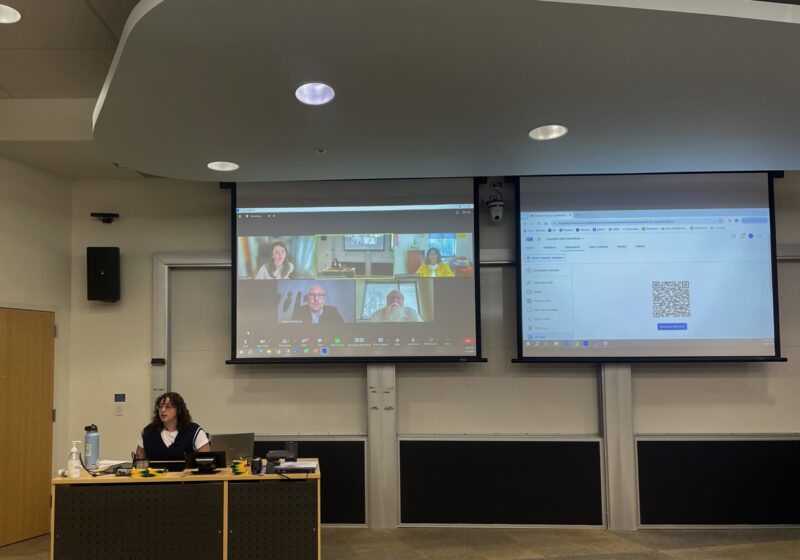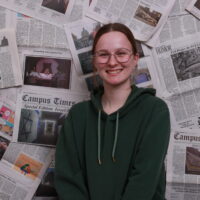So, what’s going on with weed? The Alcohol and Other Drug Education Program (AOD) hosted a cannabis Q&A panel on Friday to help clear the air.
The panel covered a large variety of topics, including the idea of changing cannabis from a Schedule 1 drug, serving sizes, whether cannabis is a gateway drug, the history that influenced contemporary perceptions of cannabis, and more. The AOD brought together experts from across the University, including a substance use specialist, biochemist, lawyer, and a UR policy representative.
The panel discussion was broadcast to five students in Sloan Auditorium. Two sheet pizzas and many canned sodas sat largely untouched throughout the event. Only two students sat through the entire event. Three left after only 15 minutes.
The panel discussed the struggle behind finding accurate information on the effects of different cannabis products.
“We are a little bit in the wild west, and there’s a lot of anecdotal information,” Dr. Harold C Smith, a UCC substance use specialist, told the audience. “Since we’re all unique people interacting with drugs that are affecting various parts of our body, we may or may not all have the same response to the same product. It is something to keep in mind when weighing the validity of information you might find online.”
Dr. Riley Kirk, a cannabis research scientist and co-founder of the nonprofit organization Network of Applied Pharmacy, emphasized that descriptions of how particular products affect the user are not entirely reliable. “You’re kind of in a unique place because as a consumer your own system is so unique and going to interact with this complex medicine in a slightly different way than a lot of other people. So being able to just read something on the internet and be like ‘that is exactly the right product for me’ without trying it, that’s going to be a little difficult.”
Dr. Kirk recommends comparing academic research to what is being said in the industry to get a balanced look. However, cannabis is still a Schedule I drug, meaning the government considers it to “have the highest risk of abuse,” severely limiting cannabis-related research opportunities in the U.S.
“For a long time, to do federally sanctioned plant-touching research, you could only get cannabis from one source,” Mathew Swinburne, the associate director for the Network for Public Health Law’s Eastern Region, told the panel. “ That source did not produce cannabis that reflects the cannabis we see in the dispensaries or on the street.”
Cannabis is still federally illegal, adding barriers to research at facilities reliant on federal grants. Smith explained that at URMC, federal grants make a large portion of all grant money, so someone doing cannabis research could run the risk of everyone losing those funds. Cannabis’ legal status also helps to perpetuate negative stigmas associated with the drug, Smith said.
“Imagine sitting at a Biochemistry faculty luncheon where you’re talking about the department process, and Dr. Smith is working on THC. First thing they wonder is whether I’m high,” Smith told the audience. “There’s no serious attitude towards cannabis in the research community, as it was because it was considered a drug, something that dealers provided. […] That has changed, and thank goodness that has changed because now we are getting really more solid data from research.”
The panel moved onto discuss whether cannabis hurts or helps anxiety.
“Well, cannabis does help in small doses, to kind of help relieve your anxiety. But the longer you’re using it, the more you’re using it, it becomes a more reverse effect, it impacts your anxiety,” Sampson said. “Now with CBD, that does not [increase anxiety]. You actually still have a positive effect.”
This leads to the issue of when someone should take a tolerance break,a period of time where someone takes a break from cannabis.
“I think when your daily habits have changed, you’re starting to turn for the worse and having negative impacts. […] It’s a challenge to say that you’re going to take a break and what does it look like,” Sampson explained. “And you’re going to do at least for 21 days, that is something that you have to take time and get the support that you need. You’re definitely more than welcome to come to UCC.”
A recording of the panel will be available on the AOD Education Program website for those unable to attend.




